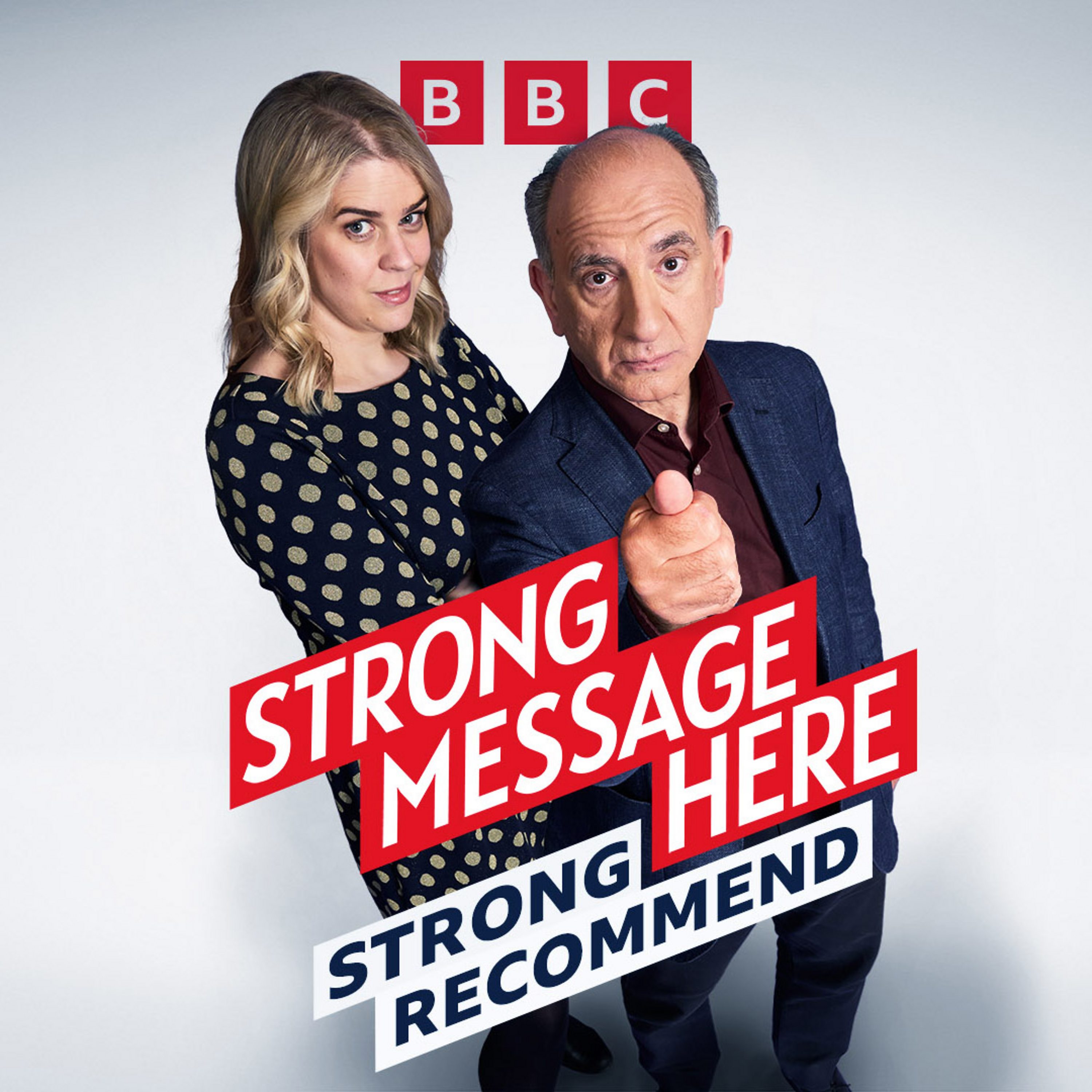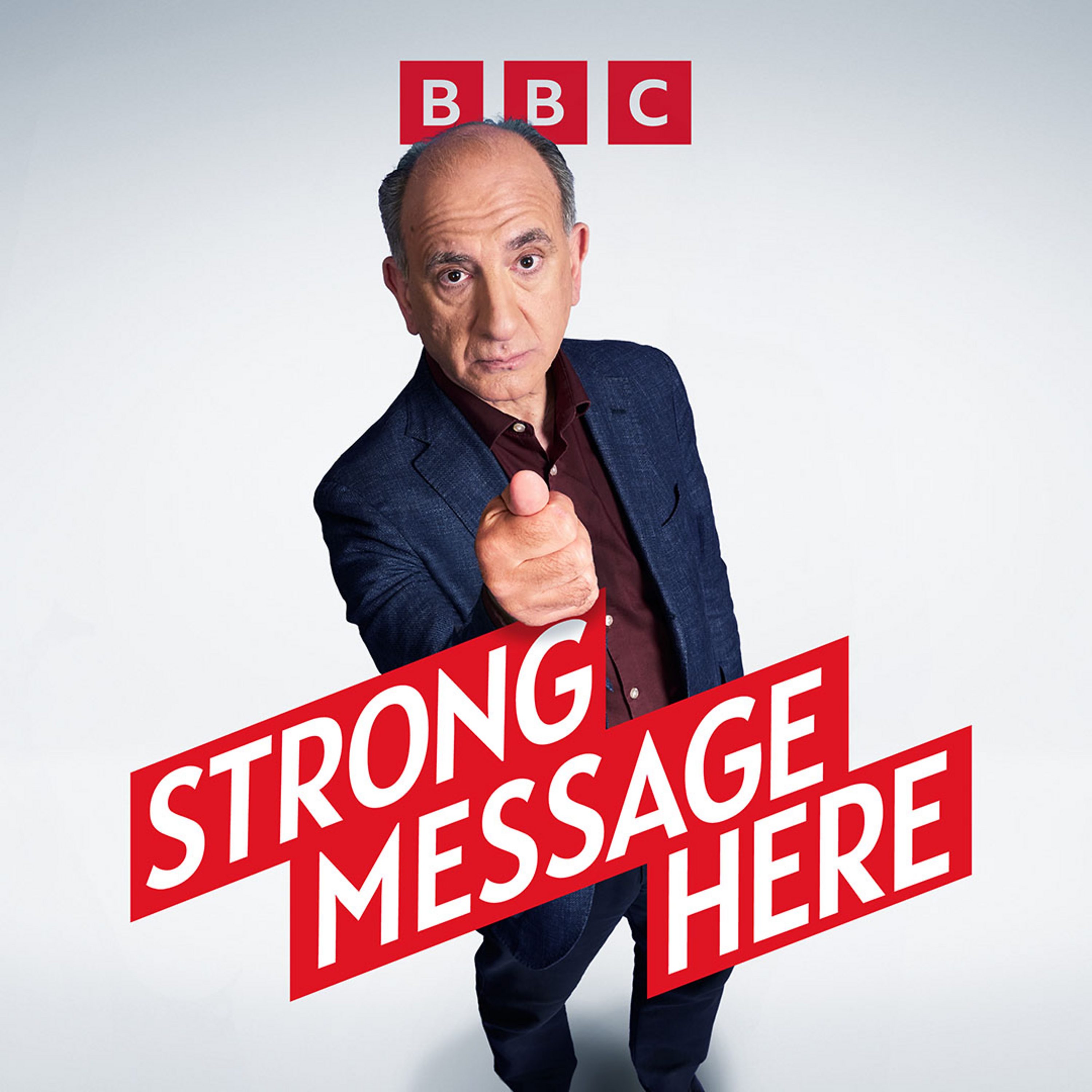Strong Recommend: The Bookshop by Penelope Fitzgerald
Fancy trying a new author, but don't know where to start? Armando recommends a short novel by Penelope Fitzgerald, and Helen shares a tip on how to try on a new author for size before committing.
Join Helen and Armando over the summer for more cultural recommendations, available weekly on BBC Sounds.
Production Coordinator: Sarah Nicholls
Executive Producer: Pete Strauss
Sound Editing: Chris Maclean
Recorded at The Sound Company
Strong Message Here: Strong Recommend is produced by Gwyn Rhys Davies and is a BBC Studios production for Radio 4.
Press play and read along
Transcript
Speaker 1 This BBC podcast is supported by ads outside the UK.
Speaker 2 Suffs! The new musical has made Tony award-winning history on Broadway. We demand to be home! Winner, best score! We demand to be seen! Winner, best book! We demand to be quality!
Speaker 2 It's a theatrical masterpiece that's thrilling, inspiring, dazzlingly entertaining, and unquestionably the most emotionally stirring musical this season. Suffs!
Speaker 2 Playing the Orpheum Theater, October 22nd through November 9th. Tickets at BroadwaySF.com.
Speaker 3 BBC Sounds, Music, Radio, Podcasts.
Speaker 3 Welcome to Strong Message Here, Strong Recommend, our cultural recommendations and a look at their impact on language.
Speaker 1 I'm Helen Lewis. And I'm Amanda Yucci.
Speaker 3 Amanda, it's your turn in the hot seat this week.
Speaker 4 What have you brought?
Speaker 1
I brought in a book. Very slim book.
It's only about 150 pages. It's a novel by Penelope Fitzgerald called The Bookshop.
I hadn't read any Penelope Fitzgerald.
Speaker 1 I can't even remember where this was recommended, but I'm trying very much to combat that stereotype of middle-aged men who spend most of their reading on works of non-fiction.
Speaker 1 And you just read about the Second World War, all that, which, you know, is fine, but I'm aware there are great gaps in my novel reading.
Speaker 1 Uh, even though I, you know, studied English and considered myself quite broadly read, I now realise how ignorant I am. I haven't read very, very much Russian literature at all.
Speaker 3 No, I had a good tip, which I thought someone came up, which is about 20th century writers, which is start with the memoir first. And if people can bang out a good memoir, then try the fiction.
Speaker 3 I think someone said that of Elizabeth Howard.
Speaker 3 And then if you like that, then maybe try the Caslick Chronicles.
Speaker 4 And then, you know, before you commit to 500 pages of fiction.
Speaker 1
So, well, no, I am picking up books that I recommend, but by writers that I haven't read. So Penelope Fitzgerald was one.
Beryl Bainbridge. Beckett.
I hadn't read any Beckett until recently.
Speaker 3 I mean, I still wish I hadn't read any Beckett.
Speaker 1 Oh, I love it.
Speaker 4
I knew you would. It's that kind of miserable.
No, it's funny. It's absolutely funny.
Speaker 3 Astride a grave and a difficult birth.
Speaker 4 Oh, come on.
Speaker 1 Henry James is one person I'm not sure I ever could read because whenever I read a paragraph written by Henry James, I think, what?
Speaker 4 What? What?
Speaker 3 He's got a bit of a semicolon addiction, hasn't he?
Speaker 3 I think it's very interesting. There've been lots of scaremongering about whether or not college students can't read.
Speaker 3 And it was saying certainly that they really struggle with things like, I think it was the intro of Bleak House was
Speaker 3 because that Victorian syntax and Edwardian syntax just goes
Speaker 1 talks about like dinosaurs and tyrannosaurus rexes plodding around London millennia ago. I mean it's extraordinary.
Speaker 4 Oh no, it's like weird.
Speaker 1 Great, great love.
Speaker 4 Penelope Fitzgerald,
Speaker 3 I haven't read the bookshop. I read The Beginning of Spring, which is a very weird novel
Speaker 3
set in Moscow in 1913. So obviously there's the sense that uh-oh, something's about to go a bit wrong here.
And it's about an English guy whose wife, who's a printer, whose wife then goes back.
Speaker 3 And there's a mad bit in the middle that's never really explained where someone either has a dream or a hallucination of sort of dancing in the woods. But it's but it makes it sort of magical realist.
Speaker 4 Right.
Speaker 1 That's interesting because I know she started her career as a novice quite late on in her sort of, I think when she was around 60.
Speaker 3 Yeah, I think she looked after the family first and sort of put her ambitions aside.
Speaker 3 And then I remember talking to another novelist who's very good who said to me, the great thing about her is that she never wrote the same book twice. They're all very different.
Speaker 3 I started reading The Blue Flower, which is set in 18th century Germany or something.
Speaker 4 Something like that.
Speaker 1
That's my next one. I felt that's towards the end of her career.
So I kind of thought, let's go into, and it's quite a short novel. It's amazing.
Speaker 1 It's like Trollop in Jane Austen and written in very...
Speaker 4 Is it about a bookshop? It is about a bookshop.
Speaker 1 The simple premise is, so it was written about, I think, the late 70s, but it's set in an East Anglian town, a small East Anglian town in the late 1950s.
Speaker 1 And it's about a woman who has decided she's going to open a bookshop in her town
Speaker 1 and then the issues that raises from other people who have their own ideas of what should and shouldn't be in the town.
Speaker 3 I understand from Black Books that running a bookshop is quite difficult.
Speaker 1 Where their insight into that phone is as basic as that, and yet it is halching with commentary on class, commentary on imposter syndrome, commentary on what's the status
Speaker 4
halching. Hulching.
What did you say? It's heaving with.
Speaker 1 It's halching.
Speaker 4 Is that a word?
Speaker 4 That is a word. I never heard that word.
Speaker 1 Well, if it's not a word, I claim my trademark.
Speaker 4 You're like Linnaeus. You've coined it.
Speaker 1
I think our panel of experts will be looking up. Holching.
Hulching is, yeah, I've got a thumbs up there.
Speaker 4 Scottish word.
Speaker 1 It's a Scottish word. There we go.
Speaker 3 I thought about saying, like, well, and it's a Welsh word just to wind up our producer Gwyn, but I'm assailed on all sides.
Speaker 1 and yeah and if and very economically written every sentence is razor sharp it's absolutely loaded with double meaning with repressed emotion it's great I thoroughly recommend and you say it's short yeah it's about 150 pages yeah I read um Muriel Sparks' The Girls of Slender Means, which is almost sort of subliminally brief.
Speaker 3 I think it's really
Speaker 1 she wrote lots of very short novels, didn't she? I mean, Jean Brody is about 140 or 50 pages.
Speaker 3 But I like it when people just go, this is the length their story wants to be, and they don't artificially bloat it.
Speaker 4 Exactly. Yeah.
Speaker 1 You know, if you're looking for a novel and don't want to get put off by, I mean, I thoroughly recommend Dickens and Trollope, but they are massive, then the shorter novels are a fantastic way to go into it.
Speaker 1 So that has encouraged me to not just read more Penelope Fitzgerald, but to get on with reading more of the writers that I've read so far. Well, there we go.
Speaker 3 So that's The Bookshop by Penelope Fitzgerald, Fitzgerald which is available in all good and bad bookshops. Thank you for listening to Strong Message Here, Strong Recommend.
Speaker 3
We'll be back next week with a recommendation by me. Make sure you're subscribed on BBC Sounds.
Goodbye. Goodbye.
Speaker 2
Sucks! The new musical has made Tony award-winning history on Broadway. We demand to be hosted.
Winner, best score. We demand to be seen.
Winner, best book.
Speaker 2 It's a theatrical masterpiece that's thrilling, inspiring, dazzlingly entertaining, and unquestionably the most emotionally stirring musical this season. Suffs!
Speaker 2 Playing the Orpheum Theater October 22nd through November 9th. Tickets at BroadwaySF.com

